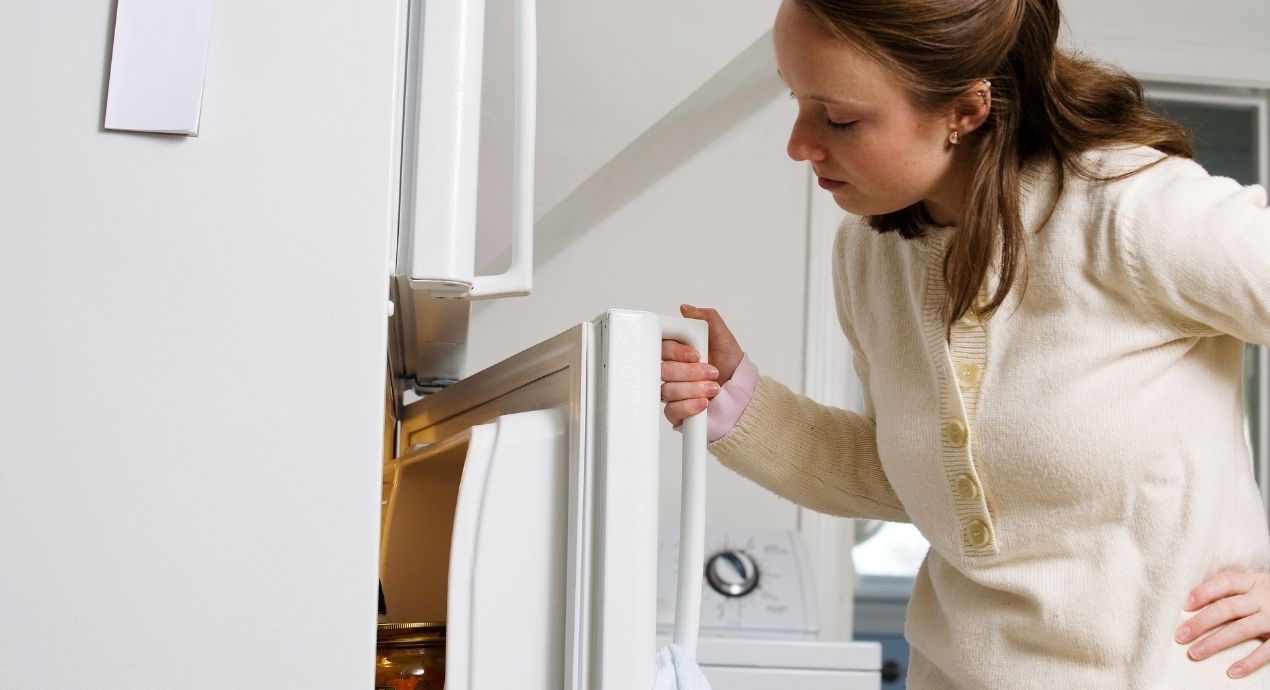
Contemplating coverage?
Subscribe to receive our emails & get
$200 off!
Have questions?
Call us: (833) 544-8273


Written By Erin Easley
Fridge trouble? Let’s get to the bottom of it.
There are many possible explanations for why your refrigerator does not cool properly. Some causes are easier—and cheaper—to resolve than others. With some quick and easy troubleshooting, you may discover that you can cool things down without the help of a professional technician.
In this article, we’ll review what can cause a refrigerator to stop cooling. We’ll also help you identify the underlying problem and explain what you can do about it.
There's a reason Liberty Home Guard was rated the #1 Home Warranty
Service by U.S. News and World Report for 2021, 2022, 2023, and 2024. Check out our services.
When troubleshooting refrigerator not cooling issues, it’s best to begin with the simplest potential problems. Not only are these problems easiest to solve—they’re also some of the most common.
It sounds obvious, but your first step in diagnosing an issue with your refrigerator should be confirming that the appliance is drawing power.
It’s not uncommon for homeowners to inadvertently unplug their refrigerator during a cleaning session or when moving the fridge for whatever reason. It’s also possible that multiple appliances overloaded the circuit and tripped the breaker. If your fridge light is out and you don’t hear any noise coming from the appliance, check the power cord. If the cord is securely plugged in, check the circuit breaker.
If your fridge is still not drawing any power at all, you can rule out a problem with your home’s electrical system by trying another appliance—even a simple phone charger—in the outlet you use for the fridge. If that device receives power, your refrigerator has an internal wiring or electronics problem that will require professional attention.
If your fridge is drawing power but isn’t keeping food cold, it could be that cool air is escaping. First check that the fridge doors are securely closed and that items inside the fridge aren’t preventing the door from closing all the way.
If the fridge door is properly closed, check the gaskets around the edge of the door. These can warp or deteriorate over time, leaving small gaps that allow cool air to escape. If the gaskets look like they’re in good shape, let’s move on to another potential cause for your refrigerator not cooling.
As a rule of thumb, a refrigerator’s thermostat should be set to about 37 degrees Fahrenheit. Some refrigerator models have thermostats that are prone to mistaken adjustments. You may accidentally raise the thermostat setting while cleaning your fridge or rearranging items inside.
If you’re noticing that your fridge is too warm, check the thermostat to confirm it is set to an appropriate temperature.
Refrigerators and freezers require adequate airflow to maintain cool temperatures. Internal vents located in the back of the unit facilitate the circulation of cold air.
It’s easy to block these vents with food items, especially in an overstuffed fridge. If the thermostat is set too low, it’s also possible for the vents to become choked with frost or ice. If your fridge isn’t cooling efficiently, the fix could be as simple as removing an obstruction from the vent.
Evaporator coils are essential to generating cool air in refrigerators and freezers. Because of their cold temperature, evaporator coils are prone to accumulating frost, especially if they’re frequently exposed to humid air.
You can find the evaporator coils in the back of the fridge, typically behind a panel that you can remove with a screwdriver. If the coils are frosted over, unplug the refrigerator and allow the coils to thaw.
Another component of a fridge’s cooling system is the set of condenser coils. While these don’t usually ice over, they can become covered in a thick layer of dust. Too much dust impairs their function by acting as a kind of insulation, keeping heat within the fridge instead of allowing it to escape.
Condenser coils are most often located in the rear or bottom of the refrigerator. If you notice a significant amount of dust, vacuum it up or wipe it away with a cloth.
Refrigerators and freezers also use fans to cool down refrigerant, expel heat, and maintain airflow. If the evaporator coils and condenser coils appear to be clean, inspect the condenser fan and evaporator fan. Ice, dust, and small objects that fall behind the fridge can prevent these fans from spinning freely.
Clean the fans and remove any obstructions. If one or both fans will not spin while the cooling system is engaged, an internal motor may require replacement.
If the fans and coils are in working order, the reason for inadequate cooling could be a broken thermostat. These are relatively cheap to replace and easy to install with a few basic tools.
Because a replacement thermostat is so affordable, it’s worth exploring this potential solution if there are no other obvious reasons for insufficient cooling. Be mindful of replacing the thermostat if your fridge is still under the manufacturer’s warranty, however. Even this minor repair could void the warranty.
There are other possible causes of a malfunctioning refrigerator: refrigerant leaks, faulty control panels, broken valves and hoses, failing motors. Such problems will most often require professional repair, which doesn’t necessarily come cheap. As of 2021, the average refrigerator repair cost is between $250 and $500.
Fortunately, you don’t need to pay such high costs out of pocket. A refrigerator warranty or broader home warranty can ensure that your fridge is affordably repaired—or even replaced—if and when it breaks down. If you have a policy with Liberty Home Guard, we’ll even find a qualified technician for you.
Use our website for a free quote, or call (866)-435-0374 to discuss your coverage options with our team.
Stay Ahead of Potential
Home Mishaps!
Subscribe to our Liberty Home Guard Newsletter and gain access to exclusive content that ensures your peace of mind.